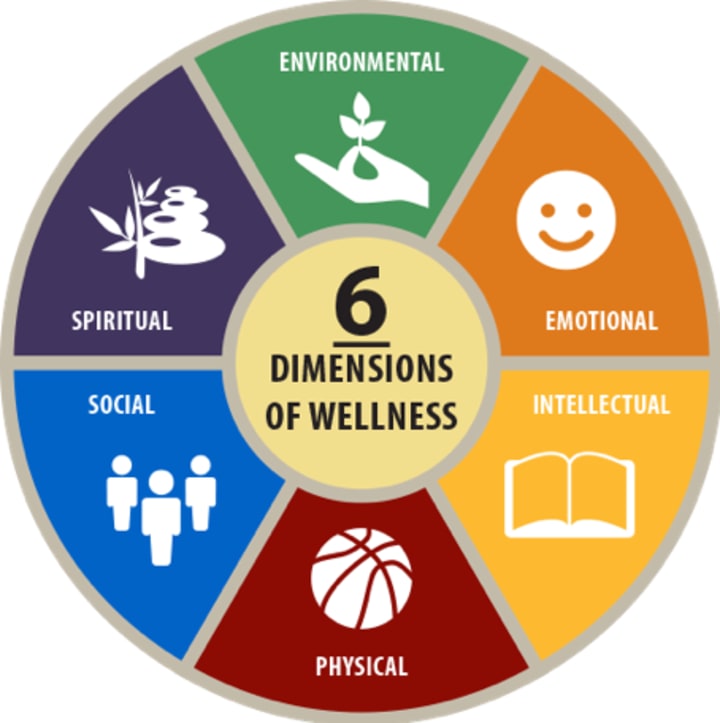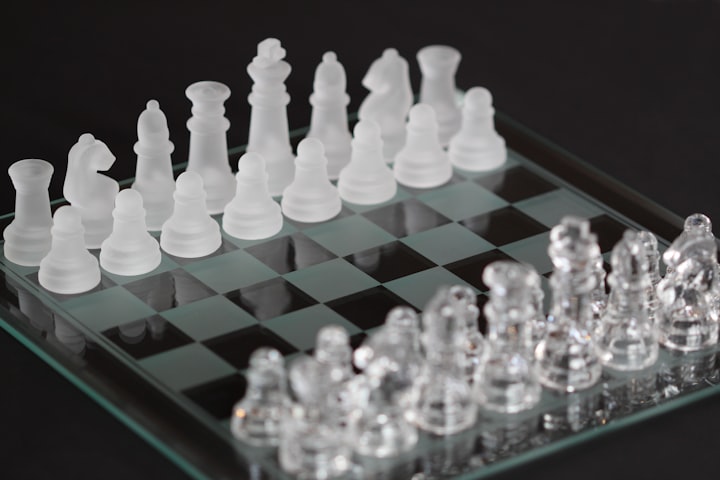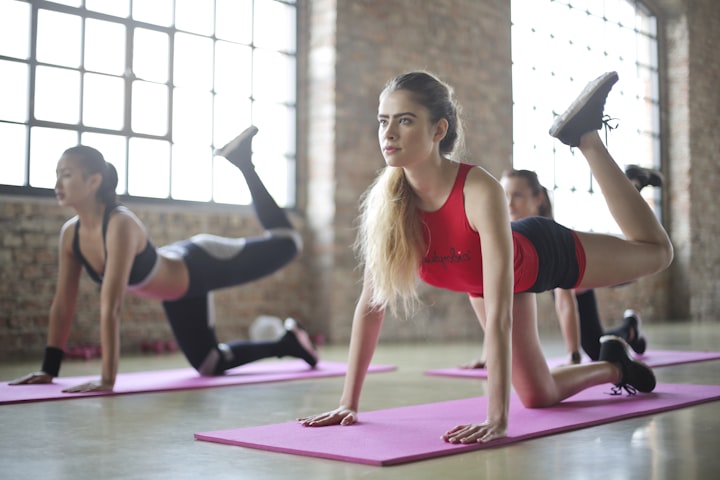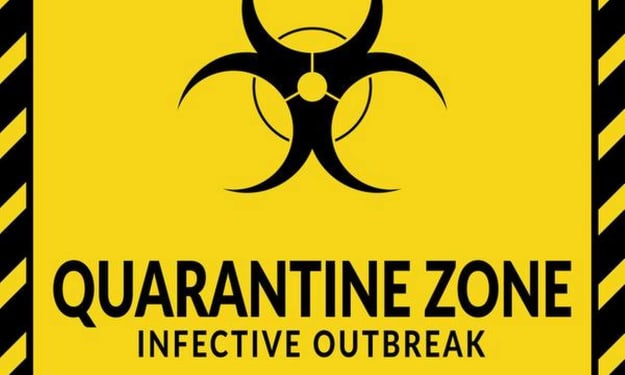Health and Leisure for All
An introduction to the informative and engaging Vocal series

As a seasonal recreation provider and recreation and leisure services student at Seneca College in Canada, I have developed a strong belief in all of the mental, psychological, emotional, social, intellectual, spiritual and physical health benefits of active and regular participation in recreational programming and activities.
By the time I reached Grade 3, I knew that I always wanted to work with children and the newcomer population, whether it was as a teacher, a daycare worker or a recreation worker. I chose to work specifically in the recreation and leisure industry, because of all the recreation programs, camps, volunteer jobs in the community, the summer camp job I have obtained, my love for travelling as well as the selection of hobbies that I have enjoyed and tried over the years. I wanted to make a difference in a child's life by helping them explore and enjoy the magic of recreation and leisure, as opposed to teaching them their ABC's and 123's in a classroom all day.
Regardless of how old I am and how busy I am, I always try to squeeze in some time for recreation and leisure, whether it's by myself or with friends and family. When I come home after a long day of school, work, programming, and/or social events, I simply love retreating to my living room or bedroom to engage in a quiet activity like reading or listening to music, as I find it helpful for my mental health. Some of my friends that don't have time to participate in recreational activities for whatever reason, so I always encourage them to at least squeeze a small portion of their time to practice their favourite hobby such as reading a book, magazine and/or the newspaper on the subway, doing a crossword puzzle in the waiting room at the doctor's office or baking with your family on Christmas holidays. You don't always need an hour or two to do your favourite hobbies, especially when you are living a busy and jam-packed life.
The meaning behind Recreation and Leisure

In addition to managing a wholesome, nutritious diet and getting a sufficient amount of sleep, the key to having good mental, social and physical wellbeing is participating in a selection of recreational activities that benefit the mind, body and soul. For humans to develop, they need constant mental and physical stimulation by the time they are born. People are made to socialize with other people, and is just as vital as learning the alphabet, numbers and the fundamental movement skills. Once humans master the alphabet, numbers, fundamental movement skills and basic social skills, they practice these skills while participating in community, school, recreational and leisure programs for life.
Recreation, leisure and play fall into the same category of pleasurable activities, however, they have three different definitions. Recreation refers to the experience or activity that recreates an individual. Leisure is any activity or state of mind experience that freely driven or happens randomly. Play refers to an exercise or activity that is done for amusement. Examples of recreation, leisure and play include going to basketball games, attending concerts with friends and family, playing video games, going to the movies, travelling and swimming.

Since recreation and leisure takes up 1/3 of a individual's life, it is important that we all understand the benefits of active recreation participation. Recreation and leisure programs and pursuits are beneficial for community development, especially when it comes to marginalized communities around the world. Not only does recreation and leisure bring community members together and solve community issues like unemployment, inaccessibility, discrimination, antisocial behaviour, alienation, crime, gang activity, environmental insustainability or poverty; it is also a means to help people cope with stress, gives people an opportunity for self-growth, improves the quality of life, and to increase self-confidence which are vital components to good mental and psychological wellbeing.
In terms of the physical benefits of recreation and leisure, people become more physically stable. From participating in drop-in sports like ping-pong at the community centre to attending a weekly Zumba class at your local fitness centre, any type of physical activity will offer citizens an opportunity to promote and support their own physical wellbeing. They will be able to prevent diseases which can help them save money by spending less funds on health care. For people with limited mobility and who require therapeutic recreation services, it is definitely worthwhile for individuals to engage in meaningful recreation, so they can increase their ability to cope, practice self-care and self-help, as well as increasing their mental and physical capacity to participate in future recreation programs long-term.
The types of recreational activities and experiences that will be discussed in the series
Since there are a wide range of pastimes and recreational experiences that cater to everyone's interests, abilities, strengths, culture and income levels, I will be discussing the benefits of both sedentary and physical activities that are all healthy and helpful for the cognitive, mental, physical, spiritual, social and emotional wellbeing of humans. While some people enjoying sedentary recreation, some people love being active and participating in athletic and physical activities. Most people love a combination a sedentary and physical activities, which is fantastic since life is better when you have a variety of pleasurable activities to enjoy, as opposed to just having a few sedentary or a few physical activities that you do for the majority of your free time. The more variety you have, the more developed, interesting and more fruitful you will be.
Sedentary recreation

Although too much involvement in sedentary activities can greatly impact the overall wellbeing of people, it is fair to have some sedentary activities that you enjoy doing in moderation. Adults live a very stressful, chaotic and busy life because of employment, volunteering, parenting, and/or family responsibilities, so it is normal to squeeze in some time to do some of your favourite sedentary hobbies such as playing mahjong with your group of friends on a Friday night, knitting in the living room, reading books, listening to music, and painting. Too much involvement in sedentary recreation can be harmful to the physical health by losing muscle and endurance since you are not using your muscles on a regular basis. Your bones will become weaker and you can lose some mineral content. Your metabolism will be greatly affected which can negatively impact your digestive system. As a result of the lack of functioning that your body has, your immune system can also be impacted, which means it can become compromised over a period of time.
On the positive side of sedentary recreation, it can be helpful for mental and cognitive wellbeing. With many people owning electronic devices such as the phone, the iPad, laptops and computers, sedentary recreation is very accessible, sometimes cheap, and sometimes free. On the iPad and iPhones, there are numerous games, puzzles and activities that you can download and enjoy for free, without having to visit the local bookstore, library, video game store or spend the majority of your budget on larger products like playstations, XBOX’s and record players. Everything is included on your devices, which in my opinion is a luxury!
Examples of sedentary hobbies that are healthy for both the mind and soul are doing jigsaw puzzles, reading books, watching documentaries, meditating, playing chess and praying. All of these activities can help improve memory, vocabulary, visual spatial skills, increase your knowledge, and reduce stress, which I will elaborate more on in the upcoming Health and Leisure for All blogs. When done in moderation, sedentary recreation is a normal part of a healthy lifestyle.

Physical activities

Over the years, a palette of physical activities like aerobics, golf, bodybuilding, tennis and squash have been played and valued by people of all ages, genders, ethnicities, cultures, abilities and family statuses. For a chance to improve your overall physical health, active participation in exercise and fitness is key! Some people think exercising is a “duty” as opposed to a “hobby” or a “pleasurable activity”, because we are all required by doctors, nurses, psychologists and physical education teachers to get at least 30 mins-1 hour of exercise per day or per week. When we are forced to exercise, it can become less fulfilling, just like when you are told to read a book for a school project when you don’t like the book or enjoy reading yourself.
The enjoyment and value of exercise has to come from the individual. The person has to want to love exercise instead of being coaxed by doctors, nurses and/or mental health professionals to enjoy exercise, so he/she can gain the most out of participating in regular fitness activities. For someone to start enjoying exercise and fitness activities, they have to find what they are most likely going to enjoy participating in and practicing on a regular basis. If you have a strong passion for sports, you will most likely find activities that are athletic such as basketball, pickleball, squash, lacrosse, hockey or volleyball that you can register for at your local community centres or even grab a couple of your friends to play a few rounds in each others yards or at the local park. If you don't enjoy playing sports, that is okay as well. There are endless ways to enjoy and engage in regular physical fitness activities through your local gyms, community centres, at the local park and/or with your friends and family in the comforts of your own homes and backyards.
Take a look at this aerobics video from 1986, to get you motivated to take action today!!
Once you get in the habit of exercising regularly, you will notice significant changes in your physical and mental health, as well as your capacity to perform daily activities that require continuous movement such as housework.
Humans are taught to move before being taught their ABC's and 123's, so it is extremely important to grasp the meaning behind physical activity and its overall benefits for human functioning. Humans are created to move around, so if we don't move, we will naturally lose our physical capacities to perform daily activities and engage in regular recreational programming. With everyone engaging in more sedentary recreation as opposed to increasing their physical activity, it is extremely important for us recreation and wellness professionals, parents, community members, educators, and students to understand not only the benefits of regular physical activities, but to also understand the negative affects that a lack of physical activity it can on the human body.
Tips for better recreation participation
1. Limit your sedentary recreation time to 1-3 hours per day. Instead of watching several hours of television on a daily basis, replace it with productive activities like puzzles, reading, drawing, writing and knitting.
2. Explore your interests, when it comes to physical activity and fitness. For example, if you love dance, look for dance classes at your local community centre or watch YouTube videos to enjoy in the comforts of home. When you enjoy the activity, you will no longer think of exercise as a "responsibility" and instead, you will think of exercise as a "hobby" or "something you absolutely enjoy doing". Squeeze in at least 20 mins- 1 hour of physical activity 2-3 days a week or 30 minutes- 1 hour every day.
3. Find friends who have mutual interests. For example, if you have several friends that love playing mahjong, see if you and your friends want to attend a mahjong club at your local community centre or even start one from your own home. Recreation and leisure participation is more fulfilling when you have a group of friends who can participate with you.
4. If you are living with a medical condition and/or condition such as Autism, ADHD, Bipolar Disorder and Cerebral Palsy, find recreational programs that are targeted to your needs to get the most out of the program. There are specially designed recreation programs called adaptive recreation programs that you can find through an organization or a special needs camp. You can network with other participants and campers with similar needs to you, when you are enrolled in a program that is with people of all needs. If you want to participate in mainstream recreation, find an inclusive and universally designed facility. Disclose your disability to the program instructor and/or program coordinator if you need to. Your disability should not be an excuse to not participate in meaningful recreation experiences in the community.
About the Creator
Talia Devora
Poetess, visual artist and lifestyle/quiz writer! My pastimes include reading, sleeping, gaming, music, fitness, etc! Be yourselves, be kind and value life! Let's connect and be friends!
My IG accounts: @tdwrites24 & @tdcreates97






Comments
There are no comments for this story
Be the first to respond and start the conversation.